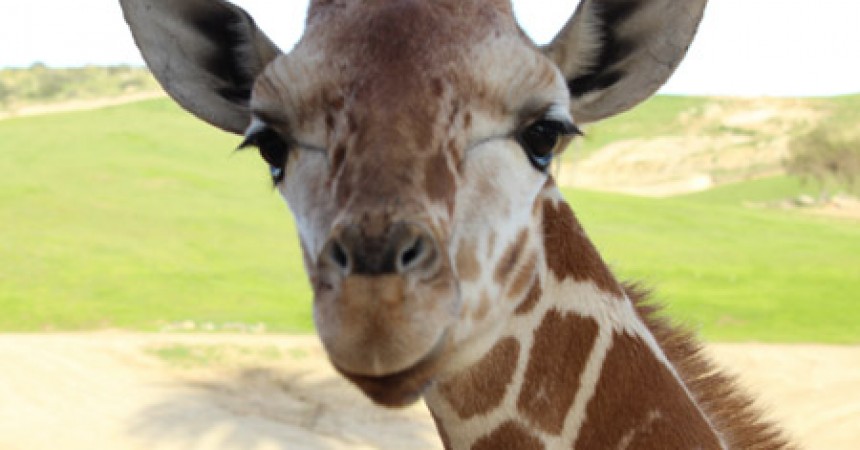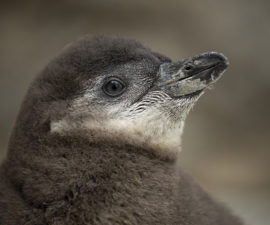Zoo InternQuest is a seven-week career exploration program for San Diego County high school juniors and seniors. Students have the unique opportunity to meet professionals working for the San Diego Zoo, Safari Park, and Institute for Conservation Research, learn about their jobs, and then blog about their experience online. Follow their adventures here on the Zoo’s website!

Have you ever visited the San Diego Zoo Safari Park? If so, you’ve probably seen or been on the tram that goes around the perimeter of the very large field enclosures. Inside of these field enclosures visitors can see different species of rhinos, and giraffes all living together. If you’re lucky, you’ll be able to go on a caravan safari, which takes you inside the field enclosures to get a closer look at these unique animals. That is exactly what interns did last Wednesday with the supervision of two Senior Mammal Keepers named Torrey Pillsbury and Roger Peterson whom have both worked with the Safari Park for over twenty years.
Ms. Pillsbury and Mr. Peterson work on the north run of the field enclosures where they may care for the animals preparing to ship to zoos across the country. Ms. Pillsbury and Mr. Peterson also work in the field enclosures to feed the animals and watch over them. They are very fortunate to have the opportunity to work with these exotic species on a daily basis from six in the morning until around three in the afternoon. In the mornings, Ms. Pillsbury and Mr. Peterson will take many bales of hay and other nutritional foods out into the enclosure for all the animals in their run. Throughout the day Ms. Pillsbury and Mr. Peterson may survey the animals to make sure they are all accounted for and keep an eye out for any animals that may possibly be sick, injured, or pregnant. Ms. Pillsbury told us that this upcoming season is very busy with newborn babies; newborn babies tend to often appear with little to no warning especially in hoofstock. When a newborn baby is discovered, Ms. Pillsbury or Mr. Peterson will write down in a log the new member of the population to keep a record for the Safari Park.
Besides the usual husbandry practices, Ms. Pillsbury and Mr. Peterson may have to do additional tasks to adapt to the needs of exotic species. Like cowboys, Ms. Pillsbury and Mr. Peterson will sometimes have to herd their animals and even lasso them. I was surprised to learn that lassoing is not just for cowboys and cowgirls but can even be used for exotic species. It is a technique that may be used in conjunction with sedation that is less stressful and reduces injury for the animals and keepers. This prevents the animal from hurting itself and running off in confusion to hurt others. It also makes it much easier for keepers to isolate one animal from a herd and prevent the herd from becoming upset.
Ms. Pillsbury also expressed that while she is taking care of these animals she doesn’t feel as though she is a mother figure but instead an educator. As the years have gone by and from the many years of her experience, Ms. Pillsbury has learned many amazing things about each species from watching their day-to-day behaviors. As she learns about the animals, she teaches students of all ages about the interesting things that many do not get to experience. It was captivating to hear her explain all the different experiences she’s been through from finding an unexpected newborn baby to leading a line of elephants into a barn. Ms. Pillsbury explained that it really is all about experience. Learning how to clean exhibits and feed the animals at your local humane society or nonprofit organization can build skills that can be used for jobs like being a Safari Park keeper. It is not just the knowledge but it is the hands on experience that lays the groundwork for someone to gain the necessary skills needed for their chosen profession.
Alicia, Real World
Week Six, Winter Session 2016


